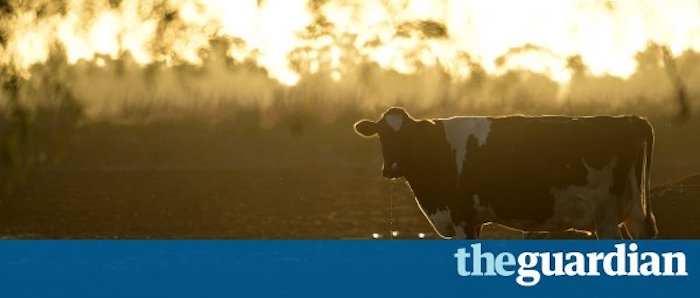In an article published by the Guardian, farmer Edward Barker has articulated the concerns of many in the industry over the prospect of a ‘cheap food agenda that sacrifices basic standards’.
Mr Barker, who manages a mixed 500 hectare farm in Northamptonshire growing cereals, with a beef and sheep enterprise, wrote:
“As the weeks went by during the Brexit referendum campaign, it became clear that the plight of British agriculture was something of a footnote, occasionally referenced by remain and leave politicians as a means of supporting their view. However, it is hard to think of any other sectors more affected by the vote to leave the EU than agriculture.”
He outlined concerns over the potential impact for farm businesses of withdrawing from the Common Agricultural Policy (CAP) and highlighted the issues around post-Brexit trade deals.
He wrote: ” Governments usually do not like increased food prices, and I fear it could bring about a cheap food agenda that sacrifices basic standards.”
“We are, rightly, prevented from importing a number of different foods and products from outside the European Union because they do not meet set standards.
“Reports of possible new bilateral trade deals being done with non-EU countries leave me very fearful that we will have to compete in a marketplace where food is being produced to standards that are much lower than our own, and possibly even illegal if we were to do that here. Hormones in beef cattle, ractopamine in pigs and bromated flour are all such examples of this, and for me no one wins in this scenario.”
The article also cited concerns over EU labour. Mr Barker said: “The vote to leave the EU centred heavily on immigration, and migrant labour from the EU, and we have to be mindful of that. However if there are restrictions placed on foreign workers it will have huge knock-on effects for fresh produce, horticulture and pig sectors that rely on a mix of seasonal and permanent workers from abroad.”
Welfare matrix
The concerns over import standards, currently being voiced across the farming industry, have been reinforced by research by the National Pig Association, which highlights the differing welfare standards across the major pig producing countries, including the the UK, the major EU producers, the US, Canada and Brazil.
Covering areas like sow stalls, production systems and antibiotic use, its ‘Animal Welfare Matrix’ demonstrates the high standards of UK production relative to some of our competitors.
NPA senior policy advisor Georgina Crayford, who compiled the document, said: “When negotiating trade deals with third countries, it is vitally important that the UK pig sector is not undercut by imports of pork from countries with lower welfare standards. We must insist on equivalent standards.”




